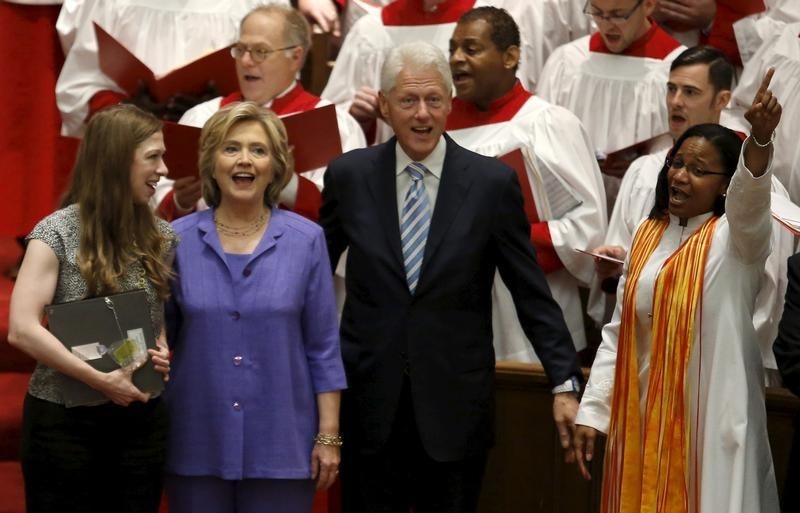WASHINGTON (Reuters) - Former U.S. President Bill Clinton likened the controversy over his wife Hillary Clinton's use of a personal email account while secretary of state to the same Republican and media tactics to stir controversy during his presidency, according to an interview made public on Saturday.
Hillary Clinton, who was the Democratic frontrunner when she announced her bid for the White House in April, has faced increasing scrutiny over her email use, including a personal computer server set up at her home in New York, and faces several inquiries in the Republican-controlled Congress.
"It always happens. We're seeing history repeat itself," her husband, who served two terms from 1992 to 2000, told CNN's "Fareed Zakaria GPS" program.
"The other party doesn't want to run against her. And if they do, they'd like her as mangled up as possible," Bill Clinton said in excerpts of the interview. The full exchange is scheduled to air on Sunday.
"I have never seen so much expended on so little," he added.
Hillary Clinton has apologized over the email issue and has said she had turned over all her work emails from her time as the nation's top diplomat for the State Department to review and make public, which it is doing in batches.
In the latest twist, on Friday, the State Department said Defense Department officials found emails that she did not give to the State Department.
Although Hillary Clinton held a substantial lead in early public opinion polls, her rivals, including U.S. Senator Bernie Sanders of Vermont, have gained on her in recent weeks.
While first lady, her husband faced several political scandals, including efforts by U.S. lawmakers to impeach him and the real estate controversy known as Whitewater.
Now, Bill Clinton said she was handling the latest political fire well.
"I actually am amazed that she's borne up under it as well as she has," he told CNN.
He added: "She went out and did her interviews, said she was sorry that her personal email caused all this confusion. And she'd like to give the election back to the American people. And I trust the people. I think it will be all right."

Still, he said: "I'd rather it happen now than later."